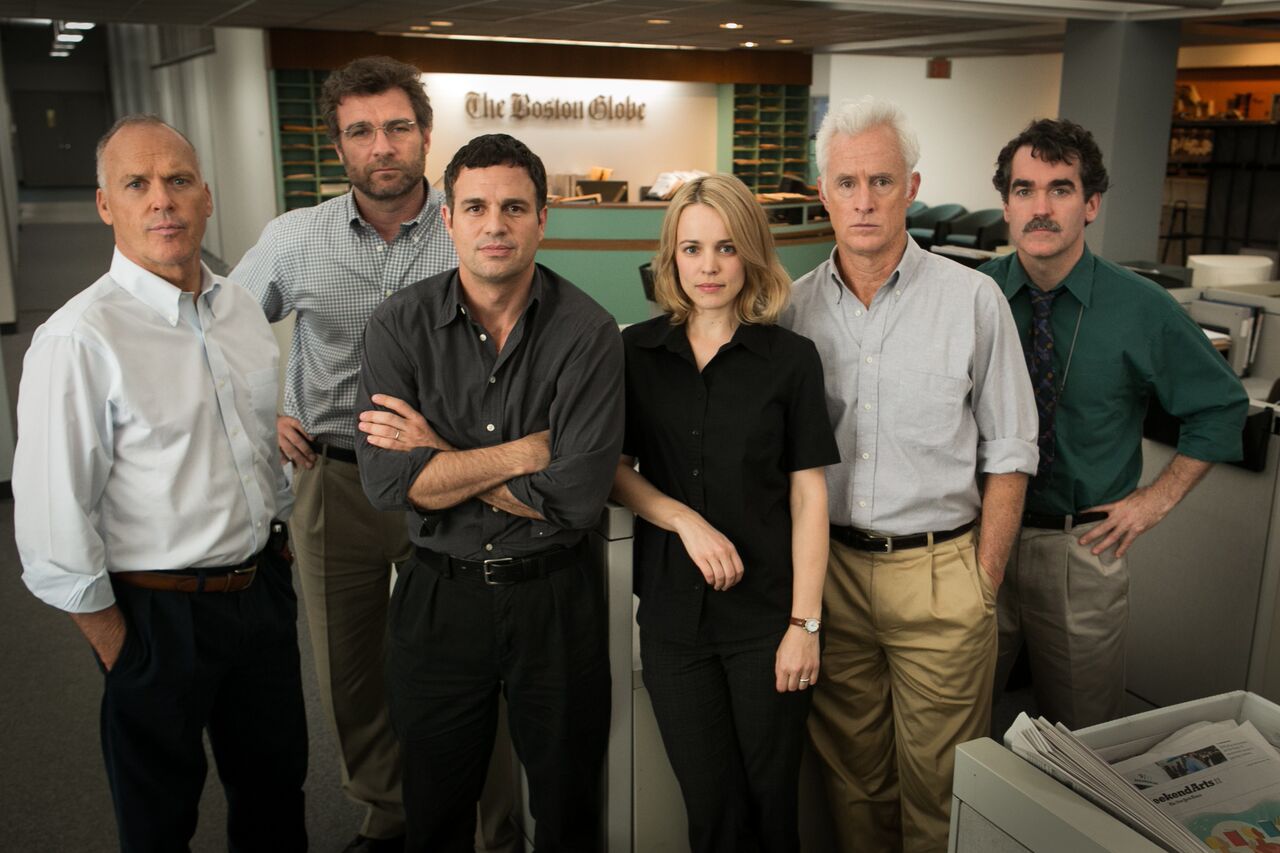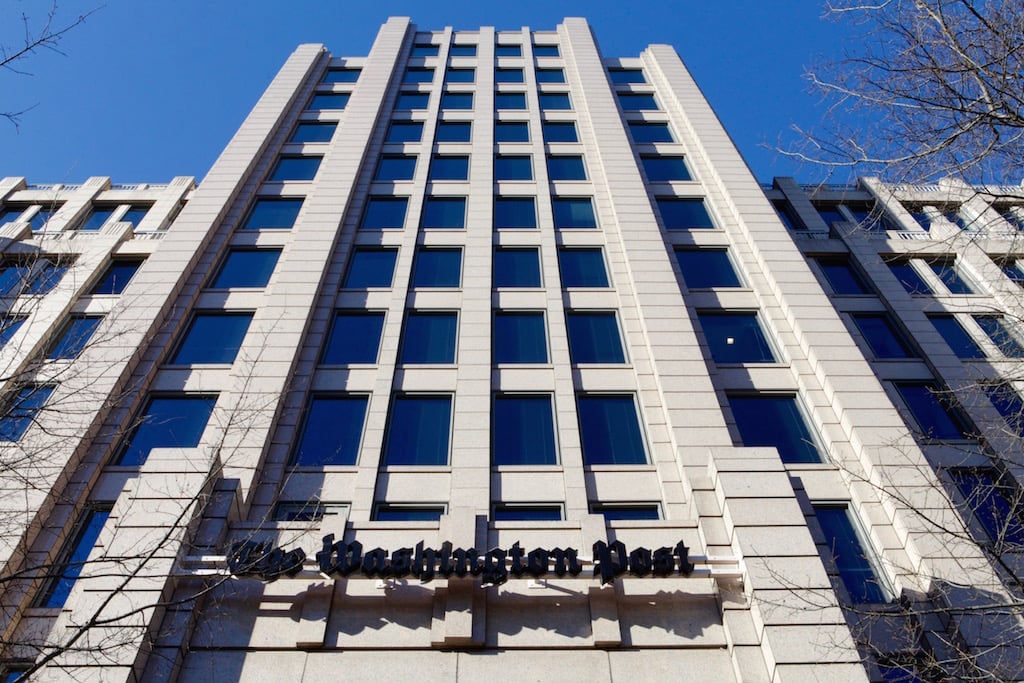Politico’s Playbook reported Monday that Rob Reiner was in town recently to study up for Shock and Awe, a film he plans about some of the few journalists who reported skeptically about the run-up to the Iraq War. “We also hope that it serves as maybe what ‘Spotlight’ did to motivate young journalists and show what investigative journalism is like and how important it is,” Warren Strobel, who was one of those journalists and who met with Reiner, told Politico.
Indeed, Spotlight, which won the Academy Award for Best Picture in February, has the potential to fill journalism schools in much the same way All the President’s Men reportedly did in the ’70s. And since Hollywood loves a winner, it’s no surprise that Reiner’s film, which has been in the works for at least a couple years, has found financing.
But as much as movies like Shock and Awe, Spotlight, and the 2014 film Kill the Messenger make heroes of journalists, it’s worth noting that the time they portray was a very different one in media. We live in an age where it’s a better time to make a movie about newspapers than to work for one.
All those movies were set in a time before the Great Recession and changes in the way advertisers found eyeballs began to eat newsrooms from the inside. Between 1990 and 2014, newsroom jobs at mid-sized American dailies, like many of the ones Strobel, Jonathan Landay, and their editor John Walcott served from the Washington bureau of the newspaper company Knight Ridder, declined by 20 percent. That drop was concurrent with sickening plunges in ad revenue and circulation.
Spotlight was set in the relatively fat and happy early 2000s, when a Boston Globe investigation showed a pattern of priests getting away with sexual abuse of children. At the end of the film, not only is the story delivered primarily on printed paper, readers use something called a telephone to call the journalists behind the monster scoop to contribute their own stories.
But the biggest changes since then aren’t technological. Consider the key roles that librarians play in both Spotlight and All the President’s Men. Those jobs have been hit very hard by newspapers’ decline, as tracked in a database by (yep, former) Palm Beach Post researcher Michelle Quigley. This year’s Pulitzer Prize for National Reporting was shared by reporter Wesley Lowery and Post researchers Julie Tate and Jennifer Jenkins. Tate has played a crucial role in nine Pulitzer-winning entries and former Publisher Katharine Weymouth honored her in 2013. In 2008 Erik Wemple, then at Washington City Paper, called Tate the “Unsung Hero of the Washington Post,” noting her supreme importance to prize-winning investigations. She was then part of a 13-person research department; she’s now part of a department that numbers five full-time employees, a Post spokesperson tells Washingtonian.
Print publications played an outsize role in selling the Iraq War, Bill Moyers reported in a 2007 segment. The New York Times, the Post, and Vanity Fair all presented ginned-up evidence against Sadaam Hussein, including one particularly surreal moment when Vice President Dick Cheney appeared on Meet the Press and discussed a blockbuster New York Times story about aluminum tubes to buttress the administration’s cassus belli. That story almost certainly originated from Cheney’s own office. “Remarkable,” the late 60 Minutes correspondent Bob Simon told Moyers. “You leak a story, and then you quote the story.”
And the newspapers that mattered most were in New York and Washington. Knight Ridder owned dozens of newspapers, but most were in cities that made them at best second reads for the type of people the administration was really trying to reach: lawmakers, captains of industry, opinion board members. “We were under the radar most of the time at Knight Ridder,” Walcott told Moyers. “We were not a company that, I think, Karl Rove and others cared deeply about, even though in terms of readers, we’re much bigger than the New York Times and the Washington Post. We’re less influential. There’s no way around that.”
One big difference between that era and today is that digital news delivery has erased much of the structural advantage the Times and the Post had. Edward Snowden bypassed the Times when he released his documents, and the Sarasota Herald-Tribune has won two Pulitzers for Investigative Reporting since 2010–the same number as the Gray Lady. (Snowden is the subject of an upcoming biopic; Zachary Quinto will play Glenn Greenwald, who reported his revelations for the Guardian.) Carol Rosenberg of the Miami Herald has led reporting on Guantanamo, and local papers have beaten national outlets at reporting the deaths of Harper Lee and Antonin Scalia.
But the biggest realignment around news is entirely beyond the pluck and resourcefulness of reporters outside the Acela corridor. 63 percent of Americans get news from Facebook, a route to readers that publishers can only pray remains open to them. Facebook, which employs fewer than 14,000 people worldwide, had $5.2 billion in ad revenue in the first quarter of 2016, putting it on track to make more from advertising than the entire newspaper industry, which employs about 33,000 people and puts out considerably more products.
Knight Ridder vanished in 2006, purchased by McClatchy, which borrowed $3 billion to buy it. That was two years before Lehman Brothers collapsed, and the costs of servicing that debt continue to make McClatchy earnings reports grim reading. Its Washington bureau still pushes out great journalism, but it closed its foreign bureaus last year to “focus above all on regional and political coverage, as well as national stories of particular impact in our communities,” McClatchy vice president for news Anders Gyllenhaal wrote in a memo. Landay described the move as “shutting off an important source of news and analysis at a time when we need to be paying more attention because our mission is to inform and educate.” He, Strobel, and Walcott now work for the news agency Reuters.



















